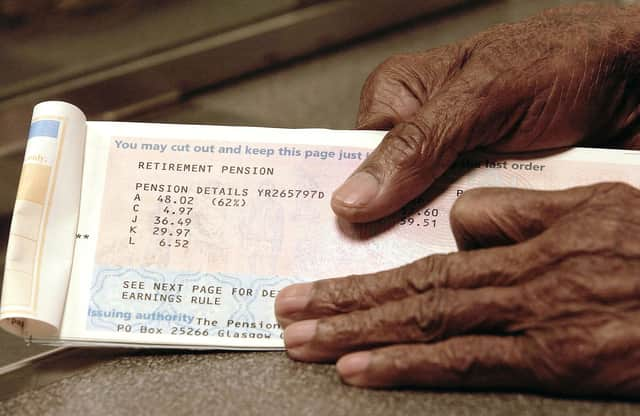How 'Great Risk Transfer' from institutions to individuals has left many people struggling with their finances – Susan Murray


Choice and freedom to choose have been prioritised by policymakers and institutions, particularly in financial services with pensions and insurance. But can too much choice become a burden?
With energy costs and inflation causing short-term anxiety among millions, we are still expected to make and live with our choices on these increasingly complex and ever-changing subjects. The onus is on us to increase our capacity to take more of these key decisions.
Advertisement
Hide AdAdvertisement
Hide AdThat’s because of what the Institute and Faculty of Actuaries calls the Great Risk Transfer, which has been shifting the burden of financial risk onto the individual and away from government and employers.
In a recent survey of 1,000 people in Scotland, we found that 54 per cent of those questioned felt that financial worries affected their physical and/or mental health and well-being. More than half of the respondents to our survey went on to say they often avoided thinking about longer-term financial well-being because of more immediate financial challenges.
Making well-informed decisions is exactly what the transfer of risk from institutions to individuals demands of us. Yet we find ourselves in extremely stressful situations that work against our ability to gather and retain the knowledge required to make those decisions or mitigate the risks.
A third of the people we spoke to said they could not afford independent financial advice, with many keen to see more age- and stage-appropriate learning in schools, colleges and universities as well as improved access to adult-learning opportunities through employers for developing financial literacy.
Only 30 per cent of people aged 35 to 44, for instance, identified having to make more choices about how to invest and when to access their pension pot as posing additional risk to their future financial well-being. Poorly understood too are the structural inequalities that impact women, whose average pension wealth is just a fifth of a man’s.
Talking about money ranks as a bigger taboo than either sex, religion or politics. It is also clear that people, especially those under 50, have little awareness or understanding of the scale and scope of the risk transfer from institutions to individuals that has taken place.
Money advice workers told us that it’s not just about teaching financial literacy at school and letting people get on with it. Signposting to information works for a minority but most people need support as they walk through the different steps of financial decisions.
If people don’t know about the scale or scope of risk in their lives, do they really have choices about complex financial decisions to manage the risks?
Advertisement
Hide AdAdvertisement
Hide AdEven if you do understand the choices in front of you, if you are struggling to pay for food or heating today, no amount of financial literacy can give you choice with money you don’t have.
Our research shows that choice about how you manage financial risk is a luxury only a few can access, and for some, that choice was a burden with unrealistic expectations of specialist financial knowledge.
Susan Murray is the director of the David Hume Institute
Comments
Want to join the conversation? Please or to comment on this article.
